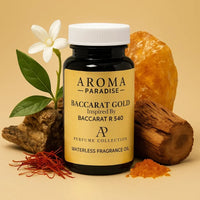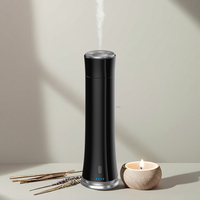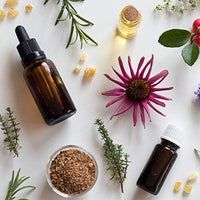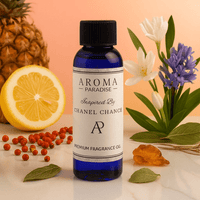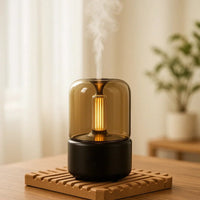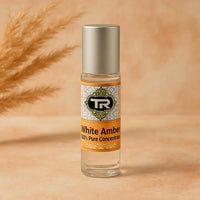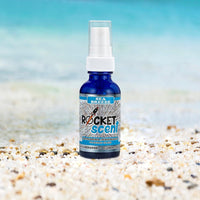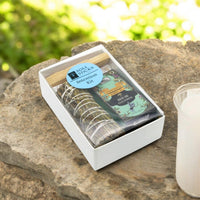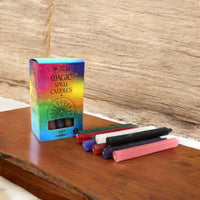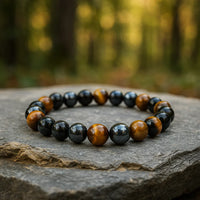
Hydrosol vs Essential Oil: Which is Better for You?
Share
When it comes to natural wellness, skincare, and aromatherapy, the conversation often centers around essential oil vs hydrosol. Many people wonder, "Which is better, medicinal water hydrosol or essential oil?" or even ask, "What are hydrosols?" While both are derived from plants and share certain similarities, they serve very different purposes depending on the intended use. In this in-depth guide, we’ll explore the unique properties, benefits, safety, and uses of hydrosols and essential oils to help you make an informed decision.
What Are Essential Oils?
Essential oils are highly concentrated plant extracts obtained primarily through steam distillation or cold pressing. These oils capture the volatile aromatic compounds of the plant, making them extremely potent and fragrant. For example, it takes about 50 to 60 roses to produce a single drop of rose essential oil.
The chemical composition of essential oils includes complex mixtures of terpenes, esters, phenols, and other bioactive compounds. This concentration is what gives essential oils their powerful therapeutic properties but also makes them potentially irritating or toxic if used improperly. They are widely used in aromatherapy, massage, personal care products, and even household cleaning.
Because of their strength, essential oils must be diluted with carrier oils before topical application. Some common essential oils include lavender, peppermint, eucalyptus, and tea tree, each known for its unique healing benefits. Essential oils are not water-soluble, which limits their applications in water-based products.
What Are Hydrosols?
So, what are hydrosols? Also known as hydrolats or floral waters, hydrosols are the water-based byproduct of the steam distillation process used to extract essential oils. When plant material is steam-distilled, both essential oil and hydrosol are collected. The essential oil floats on top, while the hydrosol contains water-soluble components along with trace amounts of essential oils.
Hydrosol, meaning translates to "water solution." Unlike essential oils, hydrosols are gentle, safe, and often ready to use directly on the skin without dilution. Their mild nature makes them ideal for people with sensitive skin, children, and even pets. Popular hydrosols include lavender hydrosol, rose hydrosol, chamomile hydrosol, and more.
Hydrosols have a subtler aroma compared to essential oils, but they still retain many therapeutic benefits of the plant. They can be used as facial toners, body sprays, linen fresheners, and in water-based aromatherapy oils like mists and inhalers.
Extraction Process: How Hydrosols and Essential Oils Are Made
Both hydrosol vs essential oil come from the same extraction process, typically steam distillation:
-
Plant material (flowers, leaves, bark, etc.) is placed in a distillation chamber.
-
Steam passes through the plant material, vaporizing the aromatic compounds.
-
The steam carrying both oil and water components is cooled and condensed.
-
The mixture separates: essential oils float on top, while hydrosols settle below.
This process allows for the full capture of both oil-soluble and water-soluble plant constituents. While essential oils are rich in volatile compounds, hydrosols contain plant acids, trace essential oils, and water-soluble components, making them unique and complementary products.
Hydrosol vs Essential Oil: Composition and Potency
The key difference lies in their potency and composition:
|
Property |
Essential Oils |
Hydrosols |
|
Concentration |
Highly concentrated |
Diluted |
|
Composition |
Oil-soluble compounds |
Water-soluble compounds |
|
Aroma |
Strong |
Subtle |
|
Safety |
Requires dilution |
Typically safe undiluted |
|
Shelf Life |
1-3 years |
6-12 months |
Because of their concentration, essential oils are typically used in small doses and require careful handling. In contrast, organic hydrosol products are gentler and can often be applied directly without risk of irritation.
Benefits & Uses of Essential Oils
Essential oils are valued for their therapeutic effects in aromatherapy, skincare, and natural medicine. Some well-known benefits include:
-
Aromatherapy: Reducing stress, anxiety, and depression.
-
Sleep aid: Lavender essential oil promotes restful sleep.
-
Pain relief: Peppermint oil helps with tension headaches.
-
Antimicrobial: Tea tree oil treats minor skin infections.
-
Household use: Natural cleaning solutions.
Despite their effectiveness, improper use can lead to allergic reactions, skin irritation, or toxicity, especially when used undiluted or ingested without supervision.
Benefits & Uses of Hydrosols
Hydrosols offer a more versatile and safer option for everyday use. They’re often called "medicinal waters" due to their healing properties without the risk of overexposure. Benefits include:
-
Skincare: Used as toners to balance pH and hydrate the skin.
-
Baby care: Safe for infants and sensitive skin.
-
Pet care: Suitable for calming pets or cleaning wounds.
-
Aromatherapy mists: Gentle mood enhancers.
-
Culinary uses: Some, like rose water vs hydrosol, can flavor foods and drinks.
Lavender hydrosol is particularly popular for calming skin inflammation, sunburns, and acne, while hydrosol rose is cherished for its soothing and anti-aging benefits in skincare.
Safety & Precautions: Essential Oils vs Hydrosols
Safety is a critical consideration when comparing essential oil vs hydrosol:
Essential Oils:
-
Must be diluted before topical use.
-
Not safe for infants, pregnant women, or pets without professional guidance.
-
Can cause allergic reactions or sensitization.
-
Store away from heat and sunlight.
Hydrosols:
-
Usually safe for direct skin contact.
-
Shorter shelf life, refrigerated for longevity.
-
Minimal risk of sensitization.
-
Can be used multiple times daily.
Always purchase products from reputable sources to ensure purity and safety, particularly when dealing with organic hydrosol or therapeutic-grade essential oils.
Which is Better: Medicinal Water Hydrosol or Essential Oil?
Deciding "which is better, medicinal water hydrosol or essential oil" depends on your intended use:
-
For therapeutic effects like deep aromatherapy or massage, essential oils may be more effective due to their concentration.
-
For daily skincare, sensitive users, or children, hydrosols are often the safer and more practical choice.
-
For culinary uses or facial mists, hydrosols are preferred.
-
For household cleaning or intensive treatment, essential oils may offer better results.
Ultimately, both can complement each other beautifully, depending on your goals.
Common Myths About Hydrosols and Essential Oils
Myth 1: Hydrosols are just watered-down essential oils.
Truth: Hydrosols contain unique water-soluble plant compounds not found in essential oils.
Myth 2: Essential oils can be used undiluted on skin.
Truth: This can lead to serious skin damage or sensitization over time.
Myth 3: Hydrosols have no therapeutic effect.
Truth: Many hydrosols, like lavender hydrosol, have scientifically backed skin-soothing and anti-inflammatory benefits.
How Aroma Paradise Ensures Purity & Quality
At Aroma Paradise, we prioritize quality in both essential oils and also fragrance oils. Our commitment includes:
-
Sourcing from trusted, sustainable farms.
-
Batch testing for purity and potency.
-
Following IFRA and industry safety standards.
-
Offering both essential oils and organic fragrance oils for different customer needs.
Every bottle is crafted with care, ensuring safety, efficacy, and satisfaction for our customers.
FAQs
Can you substitute hydrosols for essential oils?
Sometimes. Hydrosols are safer for skincare and children but may not match the therapeutic intensity of essential oils.
Are hydrosols safer than essential oils?
Yes. Hydrosols are generally safer for direct application and daily use.
How long do hydrosols last?
Most hydrosols have a shelf life of 6-12 months. Refrigeration extends their freshness.
Are hydrosols as effective as essential oils?
They offer gentler, water-based benefits and are ideal for skincare and sensitive individuals, but may not replace essential oils in intensive aromatherapy.
Final Thoughts: Hydrosol vs Essential Oil – Make the Right Choice
Both hydrosols and essential oils hold unique places in the world of natural wellness and aromatherapy. Whether you’re drawn to the gentle touch of organic hydrosol or the potent power of essential oils, understanding their differences ensures safe, effective use. At Aroma Paradise, we offer only the highest-quality plant extracts, from lavender hydrosol to therapeutic-grade essential oils, so you can confidently choose the right product for your lifestyle.


